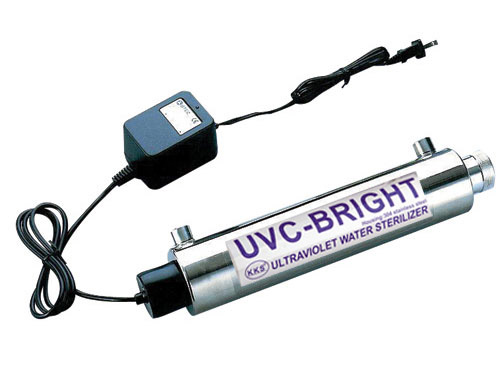
Introduction
In today’s fast-paced world, access to clean and safe drinking water is essential for maintaining good health. Waterborne diseases can pose a significant threat if we don’t take the necessary precautions. This is where UV water purifiers come to the rescue. In this comprehensive guide, we will delve into the world of UV water purifier, exploring how they work, their advantages, and the importance of having one in your home. So, let’s dive right in!
The Ultimate Guide to UV Water Purifier: Clean and Pure Drinking Water
Introduction
In today’s fast-paced world, access to clean and safe drinking water is essential for maintaining good health. Waterborne diseases can pose a significant threat if we don’t take the necessary precautions. This is where UV water purifiers come to the rescue. In this comprehensive guide, we will delve into the world of UV water purifiers, exploring how they work, their advantages, and the importance of having one in your home. So, let’s dive right in!
Table of Contents
- Understanding UV Water Purifiers
- What is UV purification?
- How do UV water purifiers work?
- Advantages of UV Water Purifiers
- Effective against microorganisms
- Chemical-free purification
- Low maintenance
- Choosing the Right UV Water Purifier
- Flow rate and capacity
- UV lamp quality
- Additional features
- Installation and Maintenance
- Installing a UV water purifier
- Regular maintenance tips
- FAQs about UV Water Purifiers
- How long do UV lamps last?
- Can UV purifiers remove chemicals?
- Are UV purifiers energy-efficient?
Now, let’s explore each section in detail.
1. Understanding UV Water Purifiers
What is UV purification?
UV purification is a method of disinfecting water using ultraviolet (UV) light. This technology is highly effective in eliminating microorganisms such as bacteria, viruses, and protozoa from water. UV water purifiers have gained popularity for their ability to provide clean and safe drinking water without the use of chemicals.
How do UV water purifiers work?
UV water purifiers work on a simple principle: they expose water to UV-C light, which damages the DNA of microorganisms, rendering them incapable of reproducing or causing infections. Here’s a step-by-step process of how UV water purifiers operate:
- Water Inlet: Contaminated water enters the purifier through an inlet.
- UV Lamp: The water passes by a UV lamp that emits UV-C light.
- Microorganism Inactivation: The UV-C light penetrates the cells of microorganisms, disrupting their DNA.
- Sterilized Water: The treated water exits the purifier, now free from harmful microorganisms.
One of the key advantages of UV purification is that it doesn’t alter the taste, color, or odor of the water, making it an excellent choice for purifying drinking water.
2. Advantages of UV Water Purifiers
Effective against microorganisms
UV water purifiers are exceptionally effective at eliminating a wide range of microorganisms, including bacteria, viruses, and parasites. This ensures that your drinking water is free from harmful pathogens that can cause diseases like cholera, typhoid, and hepatitis.
Chemical-free purification
Unlike some other water purification methods, UV purification does not require the use of chemicals like chlorine or iodine. This means that your water remains free from chemical residues and retains its natural taste.
Low maintenance
Maintaining a UV water purifier is relatively simple. The most crucial maintenance task is to replace the UV lamp periodically, typically once a year. Aside from that, regular cleaning of the quartz sleeve that covers the lamp ensures optimal performance.
3. Choosing the Right UV Water Purifier
When selecting a UV water purifier for your home, several factors should influence your decision. Let’s take a closer look at these factors:
Flow rate and capacity
Consider the flow rate and capacity of the UV water purifier to ensure it meets your household’s water needs. Larger families may require purifiers with higher flow rates and larger storage tanks.
UV lamp quality
The quality of the UV lamp is paramount. Opt for a purifier with a high-quality lamp that emits the required UV-C light for effective disinfection. Cheaper lamps may not provide the same level of protection.
Additional features
Some UV water purifiers come with additional features such as alarms to indicate when the UV lamp needs replacement or digital displays to monitor the system’s performance. These features can enhance the user experience and peace of mind.
4. Installation and Maintenance
Installing a UV water purifier
Installing a UV water purifier is relatively straightforward. It typically involves the following steps:
- Placement: Choose a suitable location near the water source, such as the kitchen sink or the main water supply line.
- Mounting: Fix the purifier securely to the wall or under the sink.
- Inlet and Outlet Connections: Connect the inlet and outlet pipes to the water source and the faucet.
- Electrical Connection: Plug in the purifier to a power source.
- Initial Flush: Run the purifier for a few minutes to flush out any air or impurities in the system.
Regular maintenance tips
To ensure your UV water purifier functions optimally, follow these maintenance tips:
- Replace the UV lamp as recommended by the manufacturer, usually once a year.
- Clean the quartz sleeve periodically to prevent it from becoming clouded and affecting UV penetration.
- Monitor the system’s performance using any digital displays or indicators provided.
- Check for leaks or damage to pipes and connections.
5. FAQs about UV Water Purifiers
How long do UV lamps last?
UV lamps typically last for about 9,000 to 12,000 hours of continuous use, which is roughly equivalent to one year of operation. It’s essential to replace the lamp promptly when it reaches the end of its lifespan to maintain effective purification.
Can UV purifiers remove chemicals?
UV purifiers are primarily designed to disinfect water by killing microorganisms. While they can effectively eliminate bacteria, viruses, and parasites, they do not remove chemical contaminants such as chlorine, lead, or heavy metals. For chemical removal, consider using a different type of water filter, such as activated carbon.
Are UV purifiers energy-efficient?
Yes, UV water purifiers are energy-efficient. They consume relatively low power, similar to a standard light bulb. This makes them an eco-friendly choice for water purification, as they do not require large amounts of electricity to operate.
In conclusion, UV water purifiers are an excellent choice for ensuring access to clean and safe drinking water in your home. They are highly effective, chemical-free, and low-maintenance devices that can provide peace of mind for you and your family. By understanding how UV water purifiers work and considering the factors mentioned in this guide, you can make an informed decision when choosing the right purifier for your needs. Enjoy the benefits of pure and healthy drinking water with UV purification technology!

